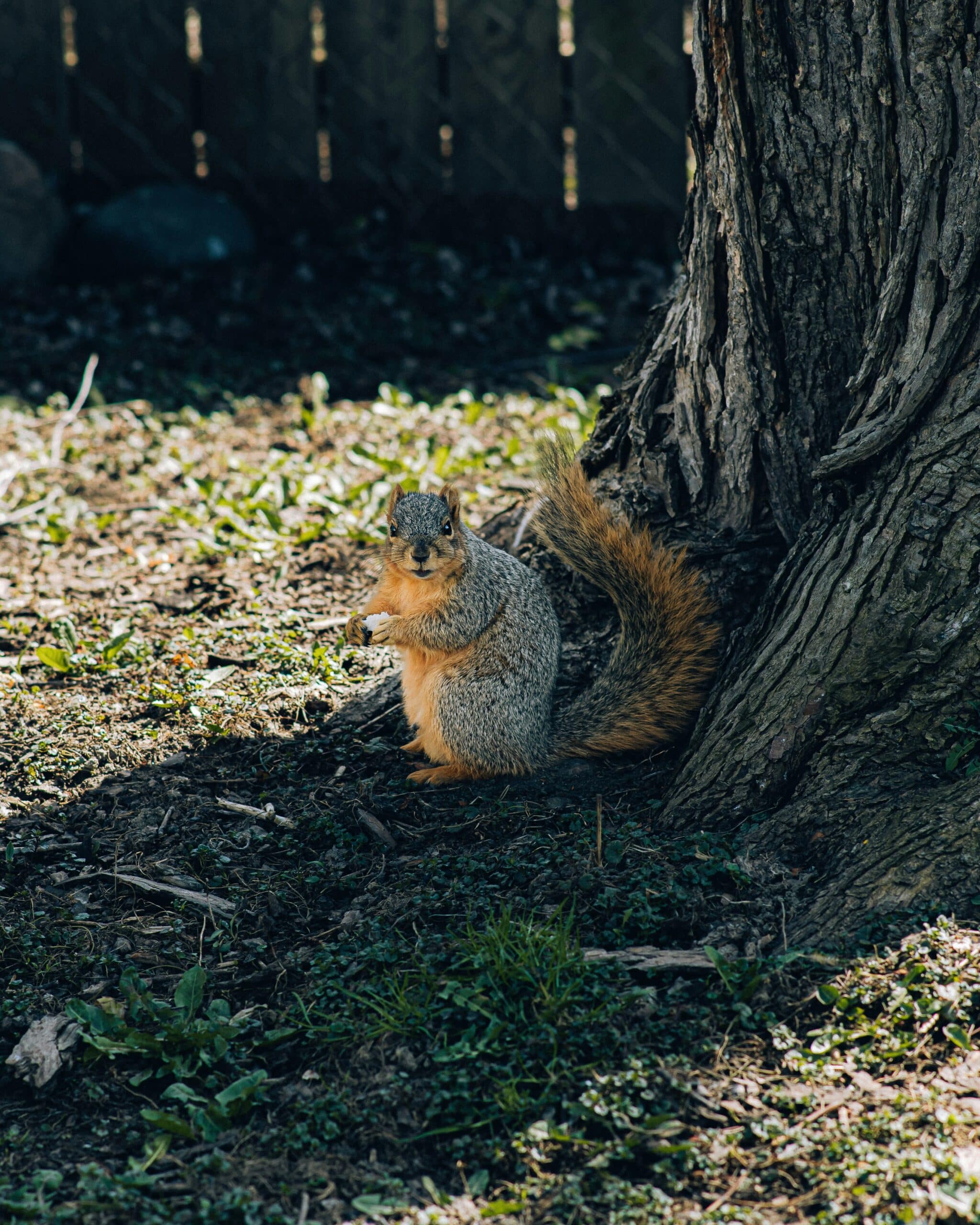Need Squirrel Removal ASAP?
Give us a call for 24/7 Emergency Wildlife Control & Removal in Dallas/Fort Worth.
(817) 606-7607Contact UsContact UsAs spring approaches, you might see more squirrels in your yard or outdoor spaces. However, their adorable appearance conceals a significant threat to your yard and garden. While squirrels might not seem harmful, they can wreak havoc in your outdoor space. Understanding the negative consequences of squirrels in yards is critical for homeowners seeking to preserve a clean and flourishing garden or environment.
Garden Devastation
Squirrels’ insatiable appetite for fruits, vegetables, and nuts makes your garden a prime target for foraging. They are infamous for raiding bird feeders, robbing flower beds, and nibbling on crops, leaving a trail of devastation. Squirrels can cause severe harm to your carefully maintained plants and undermine your gardening efforts by nibbling on tender buds and digging up bulbs and seeds.
Landscaping Damage
Squirrels can inflict physical damage to your yard’s features and structures, in addition to their eating habits. Their constant nibbling on tree bark, branches, and wooden constructions including as fences and decks can cause unsightly scars and damage the wood. Squirrels may also remove insulation from electrical wiring, providing a fire risk and necessitating costly repairs.
Nesting and Burrowing
Squirrels make nests in attics, crawl spaces, and tree hollows. Their nesting habits might result in unhygienic conditions since they may bring in waste, leaves, and even food to build their nests. Furthermore, squirrels are skilled diggers, digging holes in lawns and garden beds that can weaken plant roots and disrupt soil foundations.
Bird Habitat Disruption
Squirrels do not directly harm birds, but their presence can disrupt breeding locations and habitats. Squirrels may raid bird nests for eggs and young, fighting with birds for scarce resources such as nesting materials and food supplies. This competition can harm local bird populations and biodiversity in your yard.
Nutrient Loss and Soil Compaction
Squirrels frequently bury nuts and seeds in yards and gardens for eating. While this activity may appear harmless, it can cause nutrition loss in soil as buried seeds disintegrate and leach nutrients. Furthermore, squirrels’ constant movement on the ground compacts soil, diminishing fertility and water absorption capacity over time.
Parasite Transmission
Squirrels can spread parasites like fleas, ticks, and mites, posing risks to humans and domestic critters. Furthermore, their droppings can provide a breeding ground for bacteria and fungi, potentially contaminating your yard’s soil and water supplies.
Potential for Structural Damage
Squirrels may use susceptible entrance points in your home to seek shelter and breeding locations, such as cracks in siding, vents, and chimney openings. Once inside, they can damage insulation, wiring, and structural components, resulting in costly repairs and serious safety issues.
Are squirrels bad for your yard? While squirrels may appear harmless or even cute at first glance, their presence could have long-term ramifications. Squirrels may cause major damage to gardens, structures, and local ecosystems, making it difficult for homeowners to maintain a well-kept and useful outside space. Installing squirrel-proof bird feeders, sealing entry points, and using deterrents will help lessen the negative effects of squirrel activity while preserving the integrity of your yard and garden.
Are you in need of squirrel removal? Our friendly operators at Dallas Fort Worth Wildlife Control are available now at (817) 606-7607. Find out more about our wildlife removal in Arlington and Fort Worth, TX.


